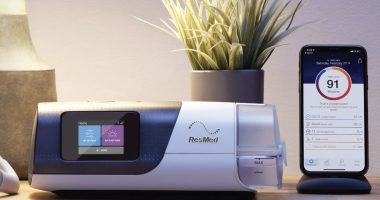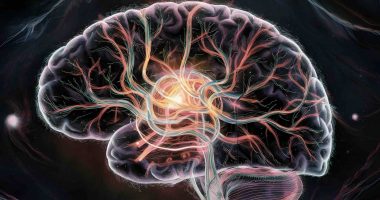- Resonance Health has successfully trained a neural network AI to assess liver fat from MRI data
- The network is intended to provide a fully automated solution for the assessment of liver fat
- The AI tool uses magnetic resonance images to analyse and deliver real time results
- The company will also seek to apply the AI in other conditions and organs
- Resonance has ended the day 6.90 per cent in the green with shares trading for 15.5 cents apiece
Resonance Health has successfully trained a neural network artificial intelligence (AI) for the automated assessment of liver fat from MRI data.
The neural network, which has been trained and validated using in-house HepaFat-Scan datasets, is intended to provide a fully automated solution for the assessment of liver fat.
Resonance’s HepaFat-Scan is quick, easy and painless with an MRI scan time of only two minutes.
It measures the volumetric fat fraction of the liver tissue. This is a measure that is directly comparable to what can be seen and measured in a biopsy specimen, the fraction of the tissue that is observed to be fat.
Histopathological assessment of a patient’s liver fat levels from a liver biopsy is commonly considered the gold standard for clinical assessment of liver fat.
However, it is subjective, has poor reproducibility and significant sampling error, and suffers from the risks associated with an invasive procedure.
Ultrasounds can also be done, however they only have a sensitivity of 70 per cent which can be reduced in obese patients.
It can also be hampered by factors such as fibrosis, swelling, and fatty acids.
So far, HepaFat-Scan is the first and only method with regulatory clearances in Australia, Europe and the U.S. for quantitive measurement of liver fat that has been clinically validated against independent measurements of the volume fraction of fat in liver biopsy specimens.
The new AI tool uses standardised magnetic resonance images acquired from HepaFat-Scan protocol and performs a fully automated analysis to deliver results in no time at all.
As demonstrated in an unpublished validation study, this tool has a high diagnostic ability at all clinical thresholds.
This tool should be suitable to assess liver fat in patients with non-alcoholic fatty liver disease (NAFLD) and non-alcoholic Steatohepatitis (NASH).
It is believed that NAFLD affects 10-30 per cent of the global population, roughly 7.6 billion people, and of this amount, around 25 per cent will develop NASH.
The next step for Resonance in commercialising the AI tool is the preparation of a dossier for regulatory clearances.
The company has commenced work on this and hopes to be in a position to submit an application for regulatory approval by the end of the first quarter of 2020.
Additional work in the application of AI to other organs and diseases is on-going with Resonance’s focus on developing and deploying cutting edge assistance tools for clinicians and radiologists to aid with the diagnosis and management of patients.
Resonance has ended the day 6.90 per cent in the green with shares trading for 15.5 cents apiece in a market cap valued at $61.93 million.







